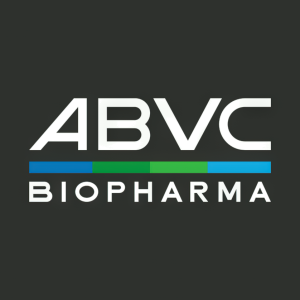Central IRB Approved for ABV-1505 Phase II Part II in Taiwan Sites
ABVC BioPharma announced regulatory approval from Taiwan's Central IRB for its ABV-1505 ADHD Phase II Part 2 clinical study, set to commence in Q1 2022 at five medical centers. This randomized, double-blind study will include 100 patients and follows a successful Part 1 study demonstrating significant improvement in ADHD symptoms. Results showed an 83.3% improvement in ADHD-RS-IV scores. The CEO expressed optimism for securing additional approvals in the US, emphasizing the therapeutic benefits of their botanical sourcing approach.
- None.
- None.
Insights
Analyzing...
ABVC BioPharma Receives Taiwan Regulatory Approval for ABV-1505 ADHD Phase II Part 2 Clinical Study
Completion of the Study Expected by the End of 2022
FREMONT, CA, Oct. 27, 2021 (GLOBE NEWSWIRE) -- via NewMediaWire – ABVC BioPharma, Inc. (NASDAQ: ABVC), a clinical stage biopharmaceutical company developing therapeutic solutions in oncology/hematology, CNS, and ophthalmology, today announced it received Taiwan Central Institutional Review Board (CIRB) approval to begin a Phase II Part 2 study of its ABV-1505 Attention-Deficit Hyperactivity Disorder (ADHD) drug at five prestigious medical centers in Taiwan.
The Part 2 study is a randomized, double-blind, placebo-controlled study involving a total of approximately 100 patients in Taiwan. ABVC is also waiting for approval to conduct part of the study in the United States at the University of California, San Francisco (UCSF) Medical Center; Part 1 of the Phase II ABV-1505 study was conducted at UCSF from January 2020 through July 2020 and was accepted by the US Food & Drug Administration in October of 2020. The Part 2 study is targeted to begin in the first quarter of 2022 and expected to be completed at the end of 2022.
The Part 1 study found that the active ingredient of ABV-1505, PDC-1421, was safe, well-tolerated and effective during the treatment and follow-up period with six adult patients. For the primary endpoints, the percentages of improvement in Adult Attention-Deficit/Hyperactivity Disorder Rating Scale-Investigator Rated-IV (ADHD-RS-IV) score from baseline through eight weeks of treatment were
“We are delighted to receive approval of all five Taiwan sites for the ABV-1505 ADHD Phase II Part 2 study protocol from Taiwan’s Central IRB,” said Dr. Howard Doong, ABVC BioPharma’s chief executive officer. “We expect to receive IRB approval from UCSF later this year and begin the study in both Taiwan and the US in the first quarter of 2022. With a focus on botanical sourcing in drug development, ABVC BioPharma’s clinical trials continue to demonstrate that medicines derived from plants and administered in appropriate doses have significant therapeutic benefits with few - if any - side effects in treating serious medical conditions.”
About ABVC BioPharma
ABVC BioPharma is a clinical-stage biopharmaceutical company with an active pipeline of six drugs and one medical device (ABV-1701/Vitargus®) under development. For its drug products, it is focused on utilizing its licensed technology to conduct proof-of-concept trials through Phase II of the clinical development process at world-famous research institutions (such as Stanford University, University of California at San Francisco, and Cedars-Sinai Medical Center). For Vitargus®, the company intends to conduct the clinical trials through Phase III at various locations throughout the world.
Forward-Looking Statements
Clinical trials are in early stages, and there is no guarantee that any specific outcome will be achieved. This press release contains “forward-looking statements.” Such statements may be preceded by the words “intends,” “may,” “will,” “plans,” “expects,” “anticipates,” “projects,” “predicts,” “estimates,” “aims,” “believes,” “hopes,” “potential,” or similar words. Forward-looking statements are not guarantees of future performance, are based on certain assumptions, and are subject to various known and unknown risks and uncertainties, many of which are beyond the Company’s control, and cannot be predicted or quantified, and, consequently, actual results may differ materially from those expressed or implied by such forward-looking statements. Such risks and uncertainties include, without limitation, risks and uncertainties associated with (i) our inability to manufacture our product candidates on a commercial scale on our own, or in collaboration with third parties; (ii) difficulties in obtaining financing on commercially reasonable terms; (iii) changes in the size and nature of our competition; (iv) loss of one or more key executives or scientists; and (v) difficulties in securing regulatory approval to proceed to the next level of the clinical trials or to market our product candidates. More detailed information about the Company and the risk factors that may affect the realization of forward-looking statements is set forth in the Company’s filings with the Securities and Exchange Commission (SEC), including the Company’s Annual Report on Form 10-K and its Quarterly Reports on Form 10-Q. Investors are urged to read these documents free of charge on the SEC’s website at http://www.sec.gov. The Company assumes no obligation to publicly update or revise its forward-looking statements as a result of new information, future events or otherwise.
This press release does not constitute an offer to sell or the solicitation of an offer to buy these securities, nor shall there be any sale of these securities in any state or jurisdiction in which such offer, solicitation or sale would be unlawful prior to registration or qualification under the securities laws of that state or jurisdiction.
Contact:
ICR
Lucy Peng
Phone: 646 677 1872
Email: Lucy.peng@icrinc.com








